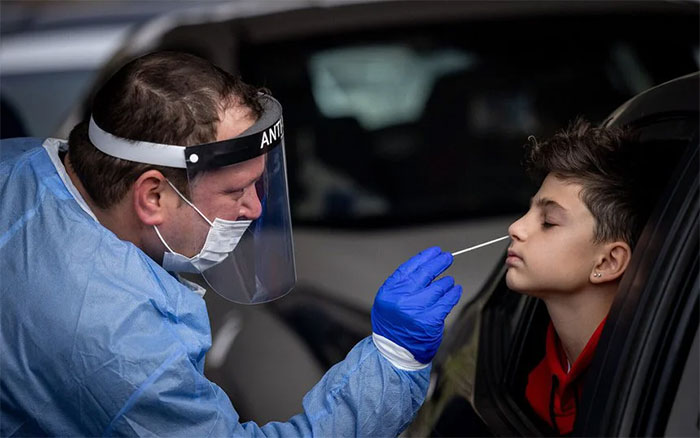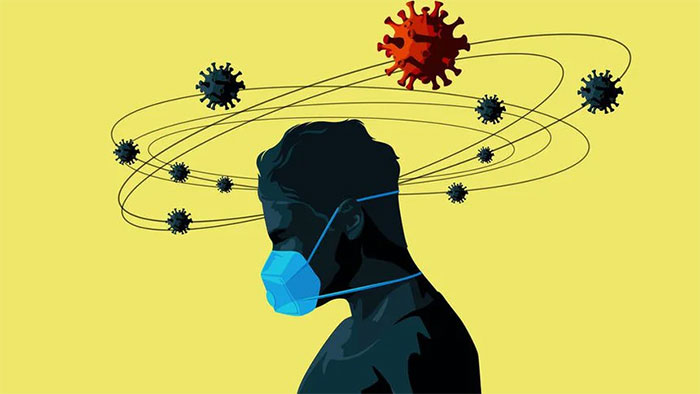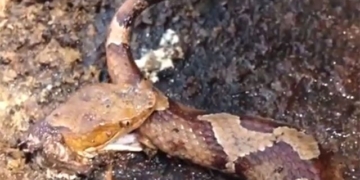Scientists say that the loss of smell and taste experienced by some individuals after contracting Covid-19 may be linked to genetic factors.
Six months after contracting Covid-19, up to 1.6 million people in the United States still cannot smell or experience olfactory dysfunction, according to NBC.
The exact cause of the symptoms related to Covid-19 has yet to be determined, but scientists believe that it stems from damage to infected cells in the nasal region, known as the olfactory epithelium. These cells protect the olfactory neurons, which enable humans to detect smells.
“How Covid-19 patients transition from infection to loss of smell remains an open question,” said Justin Turner, an associate professor of otolaryngology at Vanderbilt University.
“Initial data suggests that the support cells of the olfactory epithelium are the main cells infected by the virus. Perhaps this leads to the death of the olfactory neurons themselves,” he added.
“But we do not really know why and when that happens, or why it seems to occur only in certain individuals,” he further noted.
A study published on January 17 in the journal Nature Genetics identified another genetic factor related to the loss of smell after contracting Covid-19.
This discovery helps experts better understand olfactory dysfunction and may lead to necessary treatment directions.

Genetic factors may lead to loss of smell and taste when infected with Covid-19. (Photo: AFP).
Genetic Risks
According to the new study, a fixed gene locus on the DNA molecule, located near two olfactory genes, is associated with the loss of smell and taste caused by the coronavirus.
Scientists at the biotechnology and genetics company 23andMe conducted this research as part of a larger Covid-19 project. All volunteers resided in the United States or the United Kingdom.
Of the 69,841 individuals who self-reported positive results for the SARS-CoV-2 virus, 68% indicated that they experienced symptoms of loss of smell or taste.
After comparing genetic differences between those who lost their sense of smell and those who reported no impact, the research team found a region in the genome linked to this difference.
This region is located near the UGT2A1 and UGT2A2 genes. Both genes are found in nasal tissue, related to the sense of smell and play a role in metabolizing substances, sending signals from olfactory receptors to the brain region that processes smell.
“(Through this research), we quickly gained biological insights into a disease that was previously very difficult to study,” said Adam Auton, Vice President of Genetics at 23andMe and the lead author of the study.
The exact role of UGT2A1 and UGT2A2 in the process leading to loss of smell in Covid-19 patients is still unclear. Nevertheless, Auton and colleagues hypothesized that these genes “may play some physiological role regarding the infected cells,” leading to dysfunction and loss of smell.

The genetic risk may increase the likelihood of a person infected with SARS-CoV-2 losing their sense of smell or taste by 11%. (Photo: Flash90).
The new study also indicated that for every five patients experiencing these symptoms, four will recover afterward. However, researchers warn that this condition could lead to long-term loss of smell or reduced ability to taste and smell, impacting relationships, physical health, and mental well-being.
Scientists will need to further investigate how these genes express and function in signaling to the sense of smell, Turner added.
Other Trends
Researchers also found certain trends among Covid-19 patients experiencing loss of smell, taste, or both.
For instance, women are 11% more likely to experience this condition than men. Meanwhile, adults aged 26-35 account for 73% of this group.
The research team also discovered that those with East Asian or African ancestry are less likely to lose their sense of smell or taste.
The reasons behind this new finding have yet to be clearly identified. Auton noted that it may not stem from genetic variations at specific gene loci.
However, NBC evaluated that the study still has some limitations regarding subgroup assessments and the use of self-reported data from participants.
The scientists also noted that this research was primarily conducted on individuals of European descent, so the reference data is limited.
Danielle Reed, Deputy Director of the Monell Chemical Senses Center, assessed that these findings could assist patients in two ways.
First, “it helps answer the question of why it happened to me” when losing smell and taste after contracting Covid-19.

The new research may help scientists find treatments for Covid-19 patients experiencing loss of smell or taste. (Photo: AFP).
“Some people experience these symptoms, and some do not. Innate genetic factors may partially explain why,” she said.
The research could also help scientists discover treatment methods. Previous studies indicated that the loss of these senses is related to “sensory cells in the nose and tongue being infected by the virus,” Reed noted.
“This study suggests a different direction,” she stated. “From the outset, the metabolic pathways for sensing smell and taste may be overactive or inactive, diminishing or distorting the ability to taste and smell.”
Initial research also indicated that individuals infected with the Omicron variant rarely experience loss of smell and taste. However, this does not mean it does not occur at all. In a study of 81 patients infected with Omicron in Norway, 12% reported diminished taste and 23% noted a gradual loss of taste.


















































